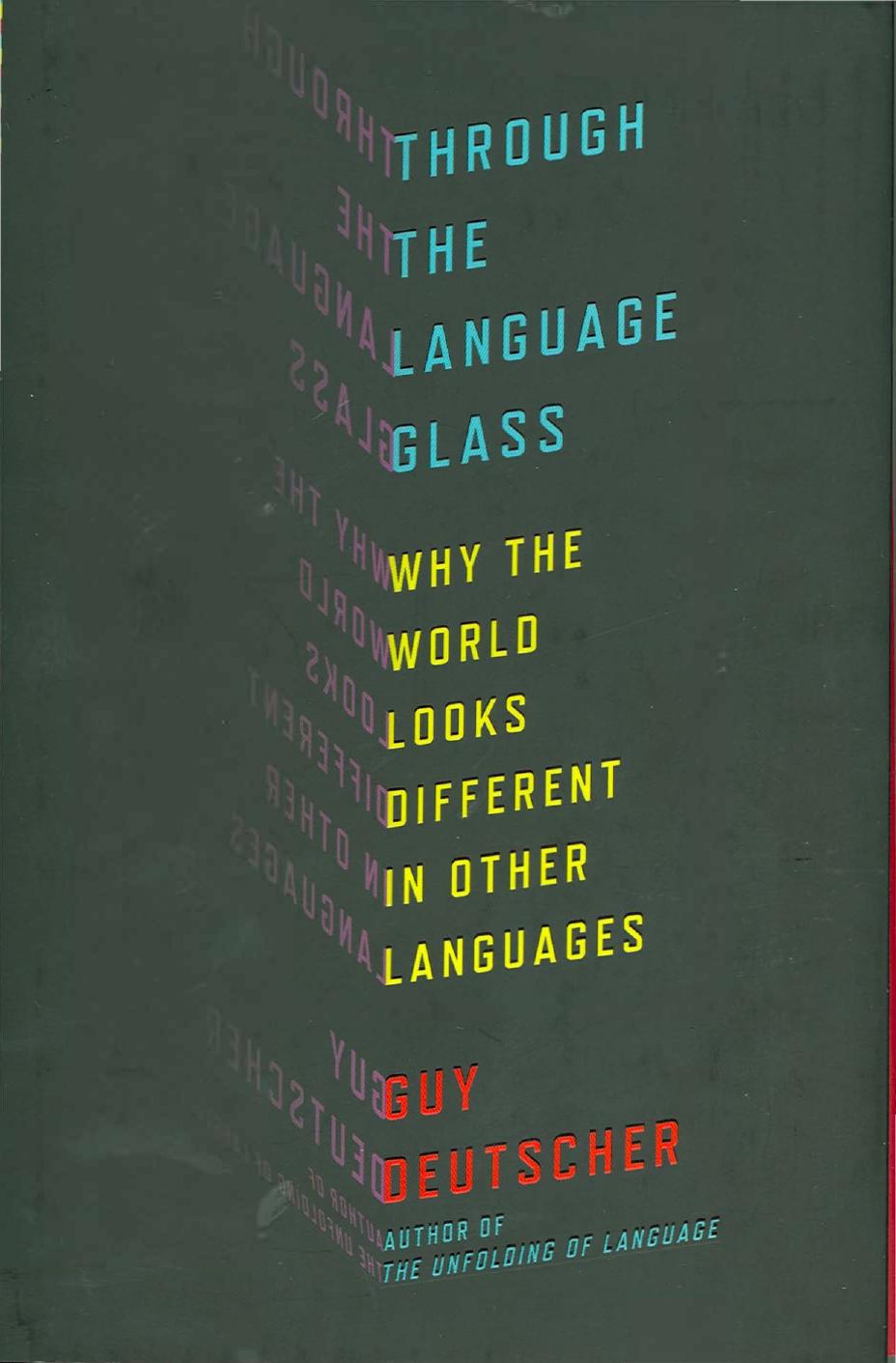Through the Language Glass: Why the World Looks Different in Other Languages by Guy Deutscher

Author:Guy Deutscher
Language: eng
Format: mobi, azw3, epub, pdf
Tags: Non-Fiction, Sociology, Psychology, Reference, Linguistics, Science, Philosophy, Linguistic History, Retail, History
ISBN: 9780805081954
Publisher: Macmillan
Published: 2010-08-31T00:00:00+00:00
THE PRISON-HOUSE OF LANGUAGE
By far the most famous claim that Nietzsche never made was: “We have to cease to think if we refuse to do so in the prison-house of language.” What he actually said was: “We cease to think if we do not want to do it under linguistic constraints” (Wir hören auf zu denken, wenn wir es nicht in dem sprachlichen Zwange thun wollen). But the English mistranslation has turned into a catchphrase, and as it happens, this phrase neatly summarizes everything that is so wrong about linguistic relativity. For there is one toxic fallacy that runs like quicksilver through all the arguments we have encountered so far, and this is the assumption that the language we happen to speak is a prison-house that limits the concepts we are able to understand. Whether it is the claim that the lack of a tense system constrains speakers’ understanding of time, or the allegation that when a verb and an object are fused together speakers do not understand the distinction between action and thing—what unites all these contentions is a premise that is as crude as it is false, namely that “the limits of my language mean the limits of my world,” that the concepts expressed in a language are the same as the concepts its speakers are able to understand, and that the distinctions made in a grammar are the same as the distinctions the speakers are able to conceive.
It is barely comprehensible that such a ludicrous notion could have achieved such currency, given that so much contrary evidence screams in the face wherever one looks. Do ignorant folk who have never heard of “Schadenfreude” find it difficult to understand the concept of relishing someone else’s misfortune? Conversely, do Germans, whose language uses one and the same word for “when” and “if” (wenn), fail to understand the logical difference between what might happen under certain conditions and what will happen regardless? Did the ancient Babylonians, who used the same word (arnum) for both “crime” and “punishment,” not understand the difference? If so, why did they write thousands of legal documents, law codes, and court protocols to determine exactly what punishment should be given for what crime?
The list of examples could easily be extended. The Semitic languages require different verbal forms for the masculine and the feminine (“you eat” would have different forms depending on whether you are female or male), whereas English does not make gender distinctions on verbs. George Steiner concludes from this that “an entire anthropology of sexual equality is implicit in the fact that our verbs, in distinction from those of Semitic tongues, do not indicate the gender of the agent.” Really? There are some languages that are so sexually enlightened that they make no gender distinctions even on pronouns, so that even “he” and “she” are fused into one unisex plastic synthetic creation. Which languages might these be? Turkish, Indonesian, and Uzbek, to name a few examples—not exactly languages of societies renowned for their anthropology of sexual equality.
Download
Through the Language Glass: Why the World Looks Different in Other Languages by Guy Deutscher.azw3
Through the Language Glass: Why the World Looks Different in Other Languages by Guy Deutscher.epub
Through the Language Glass: Why the World Looks Different in Other Languages by Guy Deutscher.pdf
This site does not store any files on its server. We only index and link to content provided by other sites. Please contact the content providers to delete copyright contents if any and email us, we'll remove relevant links or contents immediately.
| Anthropology | Archaeology |
| Philosophy | Politics & Government |
| Social Sciences | Sociology |
| Women's Studies |
The Code Book by Simon Singh(3189)
Medea and Other Plays by Euripides(1442)
The Only Grammar Book You'll Ever Need: A One-Stop Source for Every Writing Assignment by Thurman Susan(1328)
Social Linguistics and Literacies by Gee James;(1147)
The Bostonians, Vol. II (Of II) by Henry James(1108)
The Dictionary of the Vulgar Tongue by Francis Grose(1098)
The Satyricon by Petronius(981)
The Fasti (Verse) by Ovid(956)
Essential Words for the TOEFL by Steven J. Matthiesen(948)
Idylls of the King by Baron Alfred Tennyson Tennyson(943)
The Playboy of the Western World by J. M. Synge(920)
Words Fail Me by Patricia T. O'Conner(914)
The Language Instinct: How The Mind Creates Language by Pinker Steven(869)
The Great Book of American Idioms: A Dictionary of American Idioms, Sayings, Expressions & Phrases by Lingo Mastery(854)
The Language Instinct: How the Mind Creates Language by Steven Pinker(841)
The Language Instinct by Steven Pinker(832)
The Riddle of the Labyrinth(820)
Don't Believe a Word: The Surprising Truth About Language by David Shariatmadari(781)
The Etymologicon by Mark Forsyth(778)
